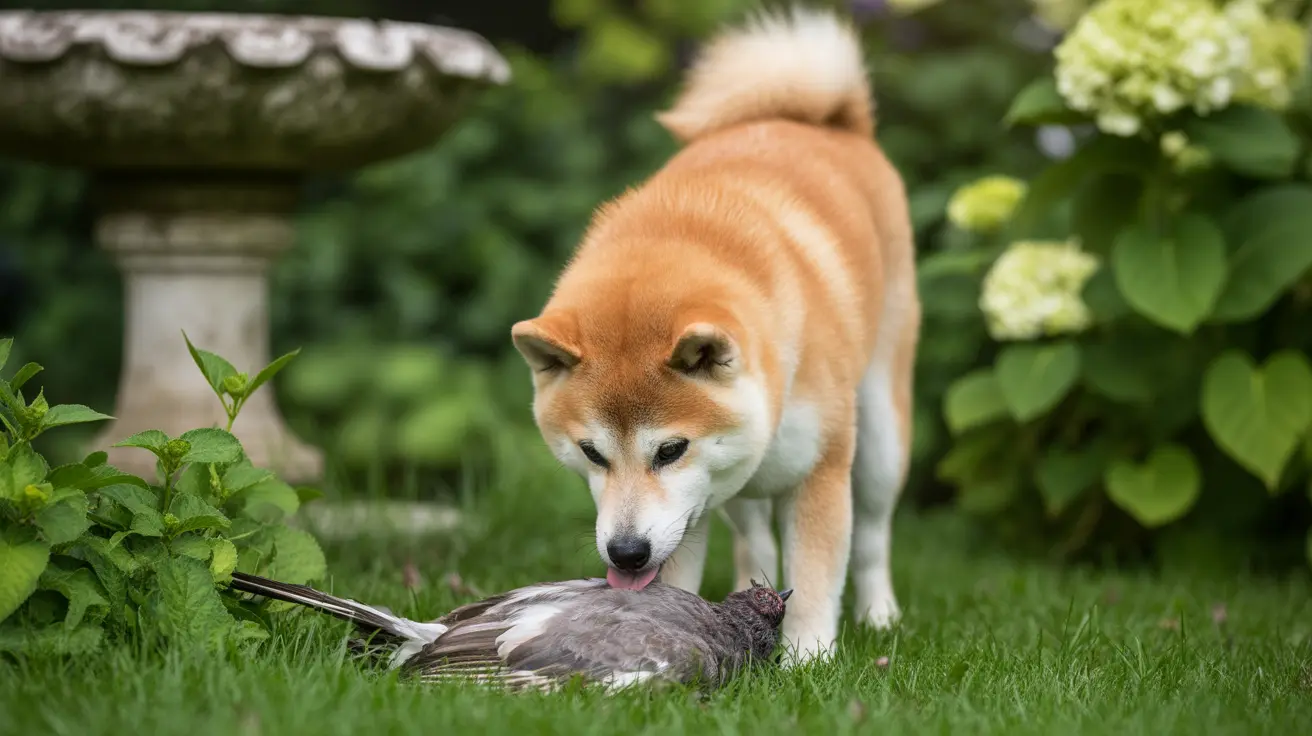Understanding the Health Risks
Bacterial and Parasitic Infections
Dead birds often harbor dangerous bacteria like Salmonella and Clostridium botulinum, which can cause severe gastrointestinal issues in dogs. Your pet may also contract parasites such as roundworms or tapeworms from infected bird carcasses.
- Severe diarrhea
- Vomiting
- Fever
- Lethargy
- Loss of appetite
Toxic Exposure Concerns
Birds that died from consuming pesticides or rodenticides pose a serious threat to dogs. Secondary poisoning can occur when your dog ingests these contaminated carcasses, potentially leading to internal bleeding, seizures, or organ failure.
Immediate Steps to Take
1. Remove Access to the Bird
If you catch your dog in the act, safely remove the bird carcass and dispose of it properly. Wear gloves and wash your hands thoroughly afterward to prevent cross-contamination.
2. Monitor Your Dog Closely
Watch your dog for the next 24-48 hours for any signs of illness. Pay particular attention to:
- Changes in behavior or energy levels
- Digestive disturbances
- Signs of pain or discomfort
- Unusual breathing patterns
- Neurological symptoms
3. Contact Your Veterinarian
Don't wait for symptoms to become severe before seeking professional help. Contact your vet immediately if you notice any concerning changes in your dog's health or behavior after consuming a dead bird.
Prevention Strategies
The best way to protect your dog is to prevent access to dead birds in the first place. Consider these preventive measures:
- Keep your dog leashed during walks
- Train solid "leave it" and "drop it" commands
- Regular yard checks for deceased wildlife
- Maintain up-to-date vaccinations and parasite prevention
When to Seek Emergency Care
Seek immediate veterinary attention if your dog shows any of these serious symptoms:
- Severe vomiting or diarrhea
- Difficulty breathing
- Seizures or tremors
- Signs of internal bleeding
- Severe lethargy or collapse
Frequently Asked Questions
What are the health risks if my dog eats a dead bird?
The main health risks include bacterial infections (like Salmonella), parasitic infections, toxic exposure from pesticides or rodenticides, and potential physical injuries from bones or feathers. Some dogs may also contract viral infections in rare cases.
How can I tell if my dog is sick after eating a dead bird?
Watch for symptoms such as vomiting, diarrhea, lethargy, loss of appetite, fever, or unusual behavior. More severe signs might include tremors, seizures, difficulty breathing, or signs of internal bleeding.
What should I do immediately if I catch my dog eating a dead bird?
Remove the bird if possible, clean the area, and monitor your dog closely for the next 24-48 hours. Contact your veterinarian for guidance, especially if your dog shows any concerning symptoms.
Can eating dead birds cause my dog to get parasites or infections?
Yes, dead birds can carry various parasites and bacteria that can infect dogs. Common parasites include roundworms and tapeworms, while bacterial infections like Salmonella are also possible.
How can I prevent my dog from eating dead birds during walks?
Train your dog to respond to "leave it" and "drop it" commands, keep them leashed in areas where dead birds might be present, and maintain consistent positive reinforcement training to discourage scavenging behavior.
Remember, while not every incident of dead bird consumption leads to illness, it's always better to err on the side of caution and prevent access to potentially dangerous wildlife remains. Stay vigilant and maintain open communication with your veterinarian about any concerns regarding your dog's scavenging behavior.






